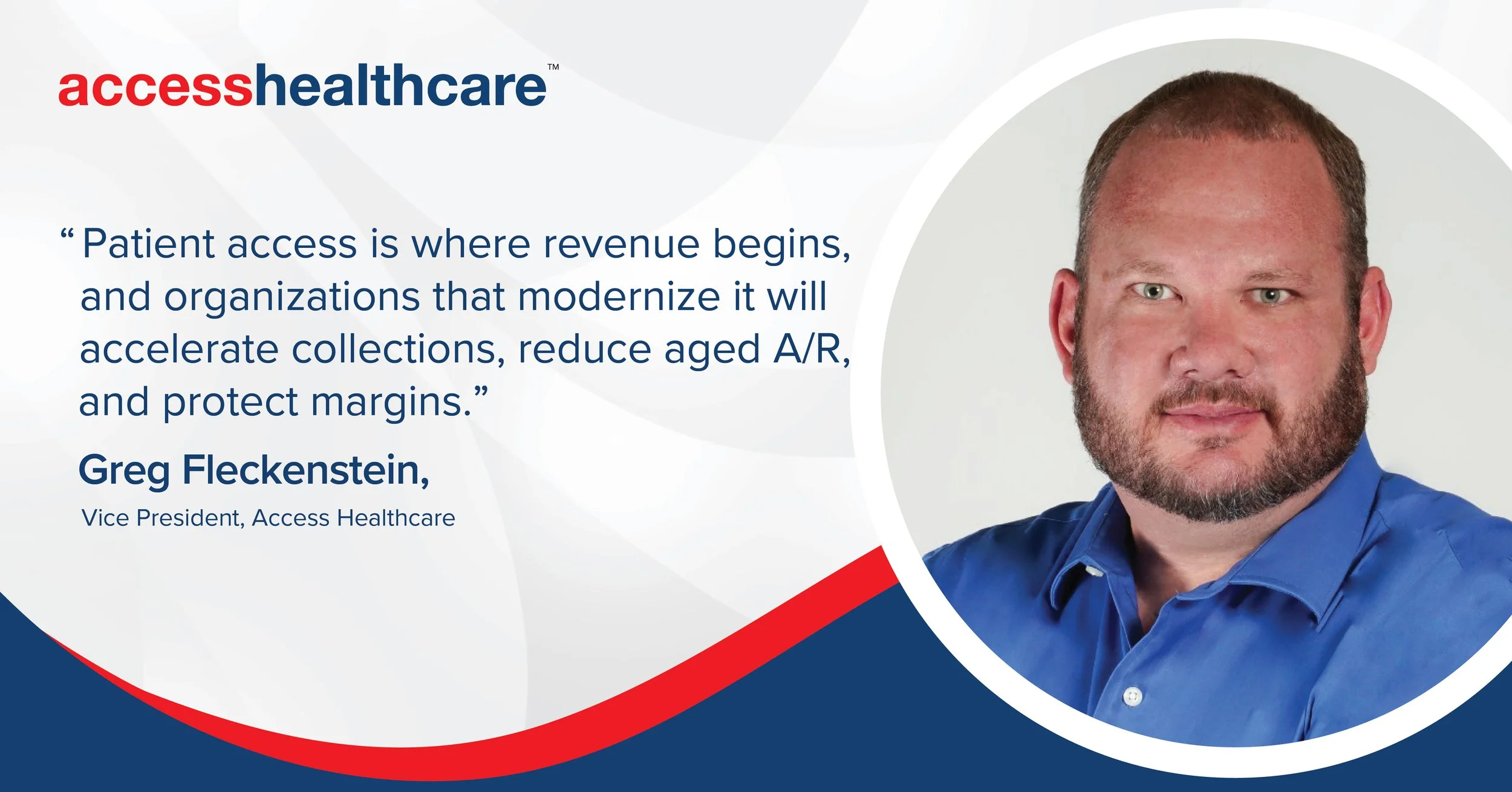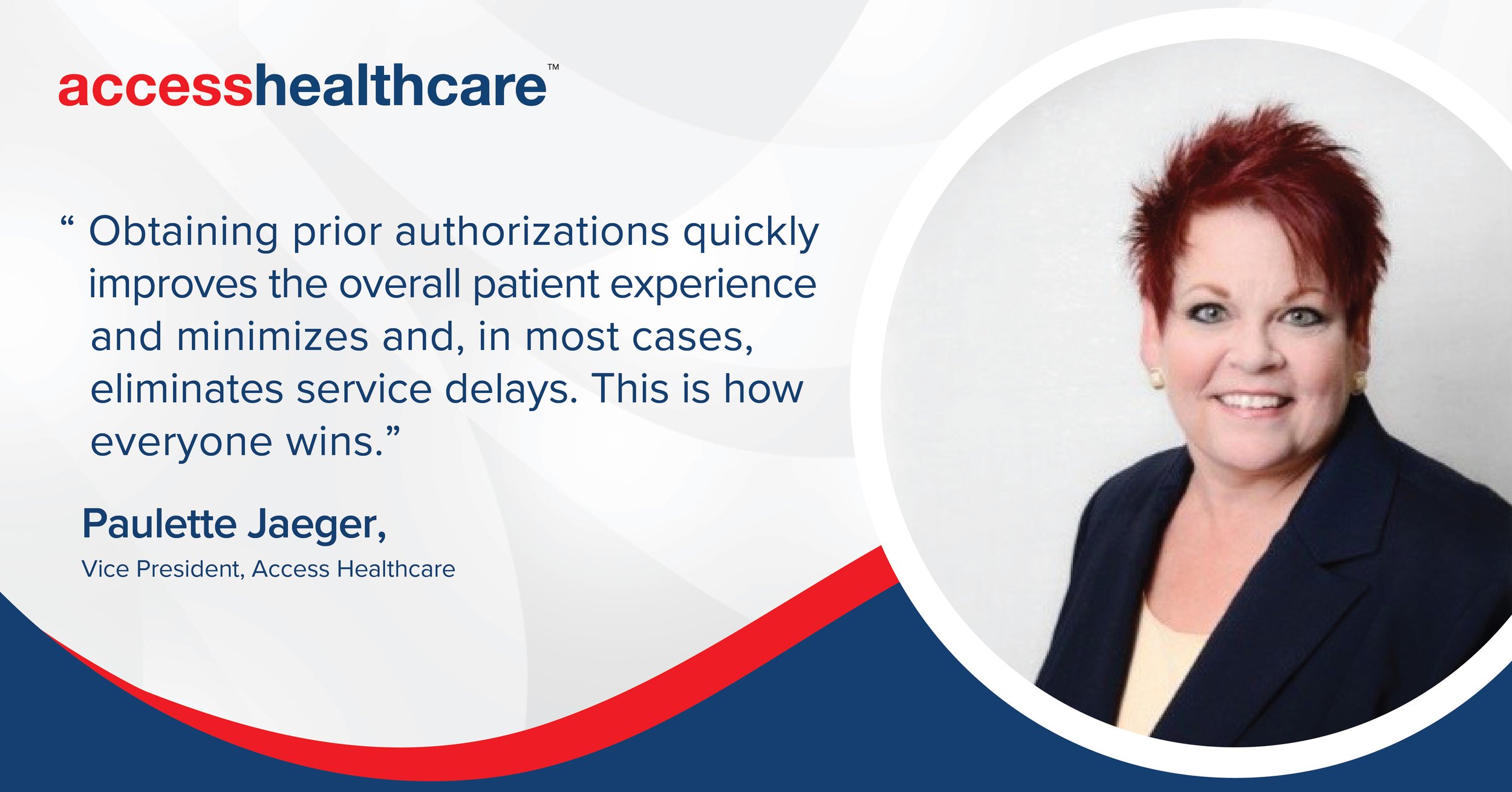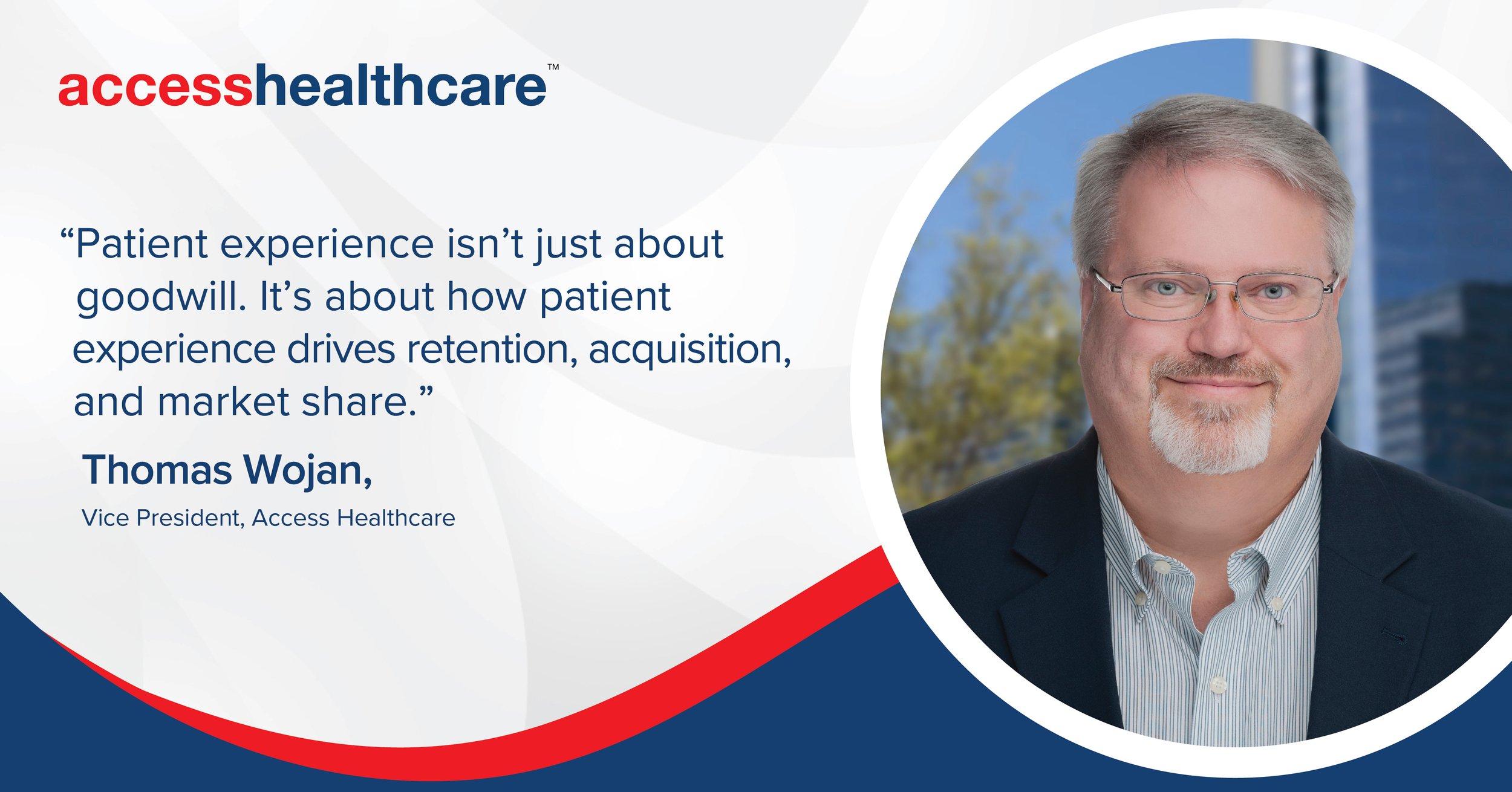Chief Growth Officer, Patient Access & Engagement Services
Most revenue cycle conversations start too late.
Organizations invest heavily in coding accuracy, denial management, and payer follow-up with their dashboards explaining what went wrong. But, by the time those metrics surface, revenue has already leaked away.
The moment to stop most revenue cycle leakage earlier. The first five minutes of Patient Access often decides whether earned revenue will ever become cash.
Front-end teams never submit claims. Yet their work shapes everything downstream: eligibility accuracy, authorization success, denial risk, patient trust, and cost-to-collect.
If you treat Patient Access as a clerical intake, your revenue cycle will absorb the damage.
The First Five Minutes Set the Financial Trajectory
Patient Access captures the raw material for the entire revenue cycle. Every downstream workflow depends on the accuracy and structure of data collected during initial contact.
Those first minutes determine:
Whether coverage aligns with the scheduled service
Whether authorization requirements surface early
Whether demographics match payer records
Whether financial responsibility becomes clear
Errors here rarely trigger alarms. However, they do compound quietly. An incorrect subscriber ID clears eligibility but fails at adjudication. A missed authorization detail creates post-service rework. A demographic mismatch delays payment and erodes confidence.
None of these failures originate in billing. All of them begin at patient access.
Revenue Leakage Rarely Looks Dramatic
Front-end errors feel small in isolation. A typo. An assumption. A rushed verification.
Common failure points include:
Eligibility checked but not interpreted
Coverage confirmed without service-level validation
Authorization rules assumed from prior encounters
Secondary coverage captured incorrectly
Patient responsibility estimated without context
Each mistake adds friction. Rework grows. Denials rise as staff chase problems that never needed to exist. When the impact finally appears as delayed cash or rising cost to collect, the Patient Access process has already faded from view.
Eligibility Is Not a Binary Decision
Eligibility often gets treated as covered or not covered, but real coverage is conditional.
Coverage varies by service, site of care, provider, diagnosis, and timing. Two patients with the same plan can face very different outcomes based on how Patient Access interprets the details.
High-performing teams ask:
Is this service covered under this benefit structure
Are referrals required
Do site-of-care rules apply
Are authorizations triggered by diagnosis or frequency
Simply stopping at “eligible” creates blind spots that show up as denials weeks later.
Prior Authorization Breakdowns Start at Patient Intake
Authorization failures rarely begin with payers. They begin with incomplete intake.
Missing clinical indicators. Incorrect ordering provider details. Inconsistent service descriptions. These gaps originate during access conversations and scheduling workflows.
Once incomplete data enters the system, automation accelerates the problem. Technology moves fast, but garbage data moves even faster.
Capturing the right data at intake prevents downstream chase work entirely.
What High-Performing Organizations Do Differently
Organizations that protect yield treat access as a strategic function. They:
Measure access performance as a revenue indicator
Align access leadership with revenue cycle leadership
Invest in coverage literacy and training
Standardize intake workflows across locations
Use automation to support decisions, not replace judgment
They understand a simple truth: you cannot automate your way out of bad intake.
Technology amplifies performance. It does not repair broken foundations.
How Access Healthcare and Smarter Technologies Support This Shift
At Access Healthcare, front-end access serves as the first line of revenue defense.
By combining skilled access professionals, standardized workflows, and intelligent automation from Smarter Technologies, organizations gain earlier visibility into coverage risk, authorization requirements, and patient responsibility.
The focus stays on better signals, clearer context, and fewer blind spots at the moment decisions matter most.
When access teams start strong, downstream chaos never materializes.
If you’re serious at looking at revenue protection for your health system, analyze the moment the patient decides to schedule an appointment. It could shed light on your entire RCM process.
About the Author
Michelle Souferian is Chief Growth Officer for the Patient Access & Engagement Services division at Access Healthcare, where she leads growth strategy and market expansion for front-end revenue cycle solutions. With 18 years of experience across healthcare technology and revenue cycle management, Michelle has built her career helping health systems strengthen patient access as a critical driver of revenue integrity. She partners closely with provider organizations to address upstream causes of denials, improve scheduling and intake accuracy, and apply RCM-grade rigor to the first patient touchpoint. Her expertise includes revenue readiness strategy, go-to-market execution, and building scalable service models that deliver measurable financial and operational outcomes.
About Access Healthcare
Access Healthcare stands as one of India's largest and fastest-growing providers of healthcare business processes and technology solutions. Our team of over 30,000+ professionals operates from 20 service delivery centers across three countries, emphasizing global delivery, workflow optimization, and our award-winning AI-enabled technology platform.
Since 2011, Access Healthcare has been a trusted partner to the US healthcare sector, leveraging domain expertise, technology, automation, and analytics to enhance clinical outcomes, financial performance, and operations for healthcare providers and payers.
Let’s build something stronger together.
Contact us to explore how our holistic approach to revenue integrity—powered by automation, analytics, and human insight—can support your goals.





















